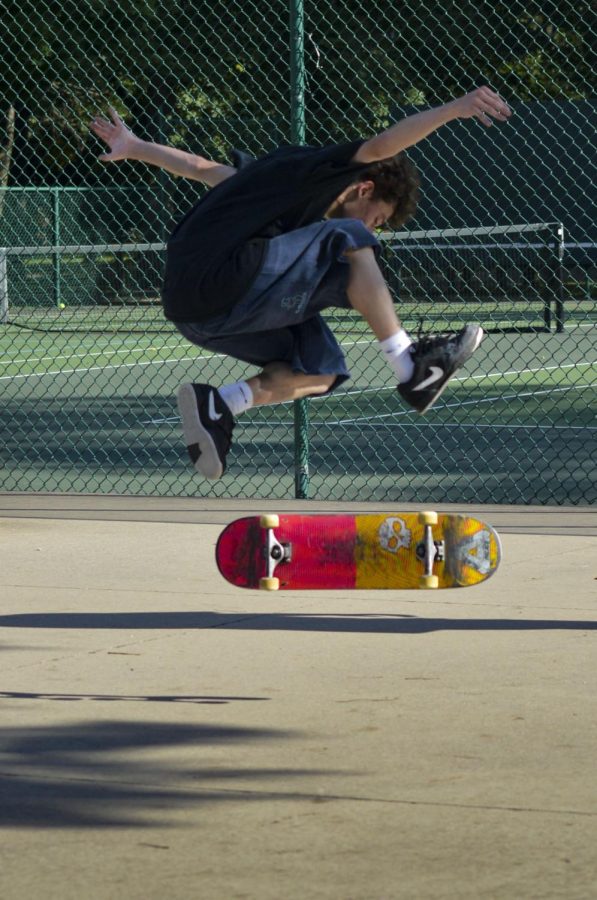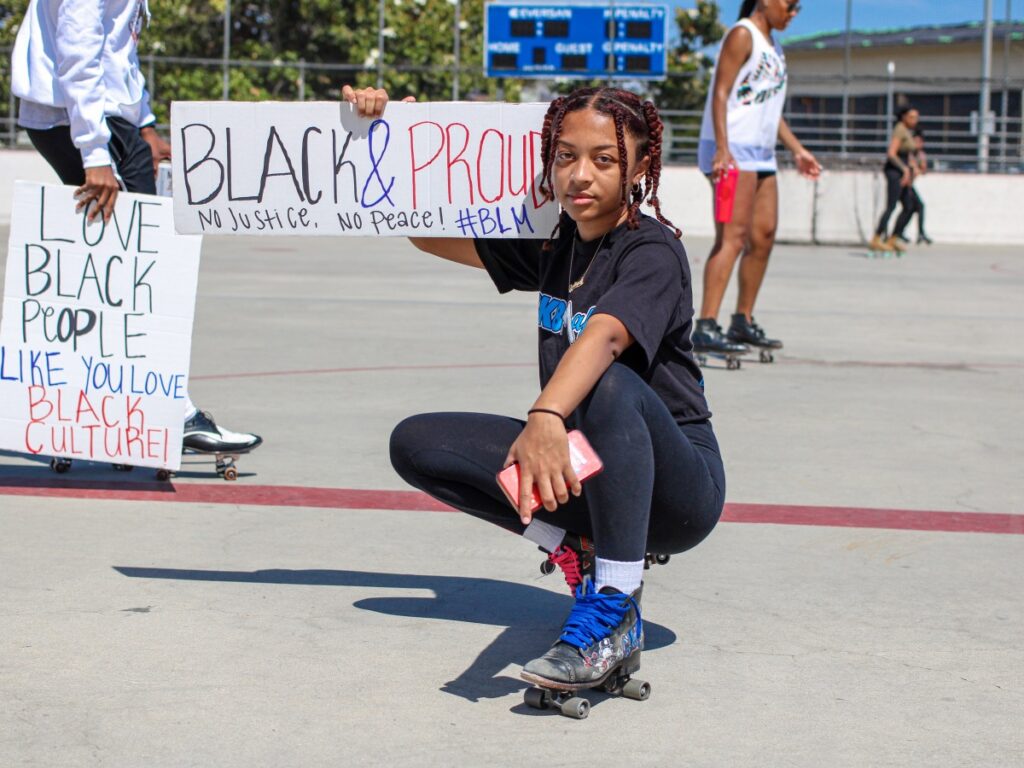Hate for skateboarders is an unfortunate reality, but there is no justification for such prejudice and animosity towards a harmless activity. Skateboarding is a popular sport that has been around for decades, yet it still faces stigma from some members of society.
Misconceptions that skateboarders are troublemakers who vandalize property persist, leading to discrimination and even legal consequences for the skateboarders. However, skateboarding is a legitimate sport that requires skill, talent, and dedication. Many skateboarders use it as a form of transportation, as well as a means of self-expression and creativity. It’s time to break down the barriers and appreciate the beauty and athleticism of skateboarding. In this article, we will explore the reasons behind the negative attitudes towards skateboarders and how to combat them.

Credit: millermedianow.org
The Skateboarding Stigma
Skateboarding has been a popular sport for several years now, but despite its growing popularity, it continues to face negative stereotypes and stigmas. In this blog post, we will delve deep into the skateboarding stigma, highlighting the structural discrimination that skateboarders face.
Overview Of Negative Stereotypes Associated With Skateboarding
Skateboarding has long been misjudged, and skateboarders have been viewed as rebellious, nonconformist delinquents who do not follow society’s norms.
- Skateboarders are unruly and anti-establishment.
- They are constantly causing trouble and disturbing the peace.
- Skateboarding is a meaningless pastime that lacks any real value.
- Skateboarders are uneducated and have no ambition in life.
Structural Discrimination Against Skateboarders
Due to the negative stereotypes associated with skateboarding, skateboarders face systemic and structural discrimination in various forms.
- Many public spaces, such as parks and plazas, have banned skateboarding altogether, making it incredibly difficult for skateboarders to find suitable places to practice their craft.
- Law enforcement officials tend to be overly harsh towards skateboarders, often ticketing them for minor infractions that other people would easily get away with.
- Skateboarders are frequently maligned by the media, which only emphasizes the negative aspects of the sport and portrays skateboarders in a bad light.
- Skateboarders are often subjected to ridicule and hostility from people who do not understand the sport, further perpetuating the negative stigma.
It is essential to understand the skateboarding stigma and the structural discrimination that skateboarders face. Instead of perpetuating negative stereotypes, society should recognize the value that skateboarding brings and provide safe spaces for skateboarders to practice their craft.
Why The Hate For Skateboarders?
Skateboarders are often treated as outcasts, facing discrimination for their passion and method of transportation. Many non-skaters and even law enforcement officers view skateboarding as a public nuisance. The question is, why the animosity towards skateboarders? In this post, we’ll explore the root causes of hate towards skateboarders and the impact of such discrimination.
Fear And Ignorance As The Root Cause Of Skateboarding Discrimination
Skateboarding is not just a sport, but a way of life for many individuals. Unfortunately, skateboarding often carries a negative image due to fear and ignorance.
- Fear of damage to public property: there is fear that skateboarders will damage public property, such as benches, rails, and walls.
- Lack of knowledge about the sport: many people don’t understand the mechanics and culture of skateboarding. They think skateboarding is just a meaningless activity.
- Fear of harm: some onlookers believe that skateboarders pose a risk to pedestrians and motorists.
Despite the widespread misconception and negative stereotype of skateboarding, it’s important to recognize the positive impact it can have on the community. Skateboarding can foster creativity and physical activity while providing a healthy outlet for many individuals who might not have access to traditional sports.
Understanding fear and ignorance as the root cause of hate towards skateboarders can lead to better recognition and accommodation of this sport. Instead of seeing these skaters as a nuisance that causes harm and damage, it is essential to acknowledge the sporting and cultural value that skateboarding brings to society.
WHY PEOPLE HATE SKATERS?
Resistance And Advocacy
Skateboarding is a popular sport that has been around for more than half a century. The sport has provided people with an exciting outlet for self-expression and creativity. However, despite the sport’s popularity and its positive impact on people’s lives, skateboarders have faced numerous challenges, including resistance and discrimination from different entities, especially law enforcement agencies.
In this blog post, we will explore the history of resistance and advocacy efforts in the skateboarding world and how skateboarders fight against discrimination and prejudice.
The Fight Against Discrimination In Skateboarding
Skateboarding has been a target of discrimination from various entities throughout history. However, skateboarders have shown resilience and determination in fighting for their rights.
- Skateboarders have formed organizations to advocate for their rights, such as the international association of skateboard companies (iasc), which is a trade association that promotes skateboarding and works to improve the industry’s business conditions.
- Skateboarders have staged protests against the ban of skateboarding in some cities and public places, successfully reversing some policies and opening up new opportunities for skateboarders.
- Skateboarders have also worked with local authorities and communities to create skate parks and designated skating areas, which provide a safe and legal space for skateboarders to practice and showcase their skills.
- Through social media, skateboarders have been able to share their stories and shed light on the challenges they face, raising awareness about the discrimination and prejudice they endure.
In the face of adversity, skateboarders have come together to defend their rights and fight against discrimination. Through their advocacy and activism, they have not only improved their own situation but have also paved the way for future generations of skateboarders.
Conclusion
In a world where we strive for unity and acceptance, it is unfortunate that some still cling to intolerance and hatred towards certain groups of people. Skateboarders have long been victims of this, facing discrimination and mistreatment simply for the way they choose to express themselves.
However, it is important to remember that every individual has the right to pursue their passions without fear of judgment or harm. By educating others on the positive aspects of skateboarding and its culture, we can work towards eradicating the hate and paving the way for a more inclusive society.
It is crucial to acknowledge the value and creativity that skateboarding brings to the world and to embrace it as a unique and powerful form of self-expression. Ultimately, we should celebrate diversity and embrace the differences that make us all special in our own ways.



